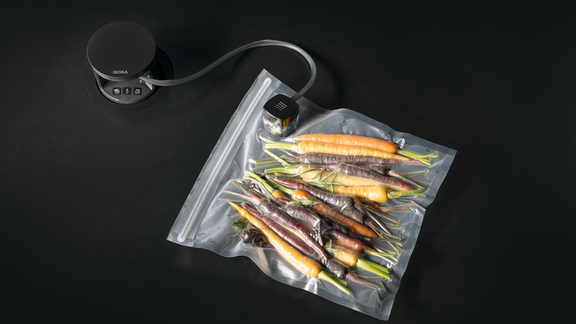

Vacuum-sealing food is an effective way to extend its shelf life and ensure exceptionally fresh flavour.
Removing air slows down the growth of microorganisms, resulting in longer storage without any loss of quality. The food loses neither its flavour nor its crisp, fresh appearance.
From vegetables, fruit, meat and fish to sauces, soups and stews, raw or cooked - vacuum-sealing allows food to be kept for longer without losing its natural flavour or consistency. The airtight packaged food is protected from environmental influences such as bacteria and the flavours of other foods that are stored next to each other in the fridge, for example. Vacuum-sealed food stays fresh up to three times longer.
The combination of vacuuming and freezing ensures optimum shelf life - freezer burn is also avoided. This occurs when air reaches the frozen food, causing the surface to dry out. As vacuum-sealed food is sealed airtight, freezer burn cannot occur. By vacuuming with the BORA QVac and then cooking the food using the special "sous-vide cooking" programme in the BORA X BO
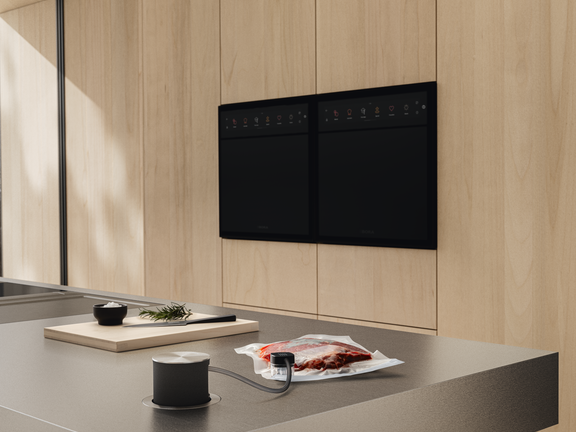
Thanks to its sophisticated technology and two versions, the BORA QVac adapts to every kitchen and every cooking style - as a built-in appliance seamlessly integrated into the worktop or as a flexible freestanding appliance in the QVac Move version.
The BORA QVac has three different functions: vacuuming in vacuum boxes and vacuum bags, resealing bottles and the marinating function.When the aroma of grilled food is in the air and guests are looking forward to an enjoyable evening, the BORA QVac Move provides that little bit extra. As a flexible freestanding appliance, it is ready for use anywhere - in the kitchen or in the centre of the action.
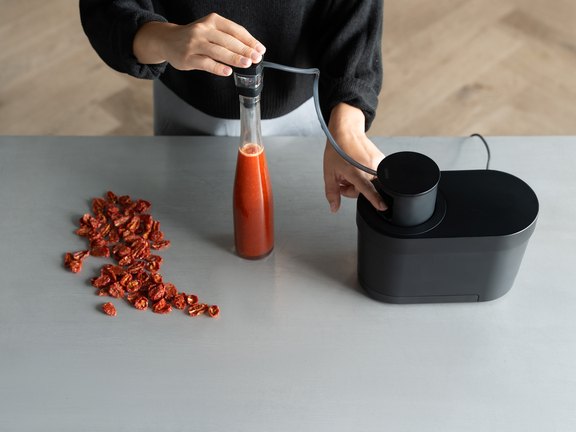
Many foods are ideal for vacuum packing:
The following foods are less suitable for vacuum packing as they lose texture or spoil more quickly:
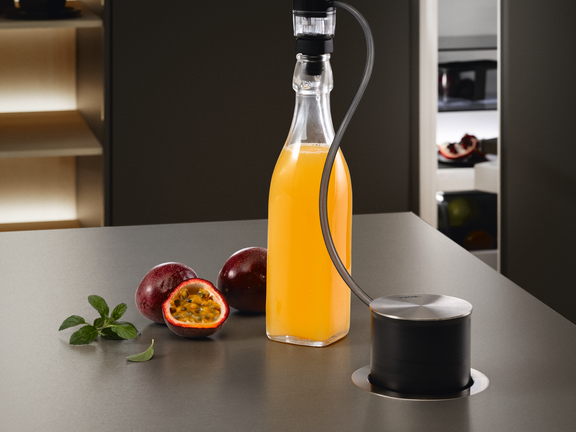
A vacuum is created during the vacuuming process and the air is extracted. The vacuum seal of the BORA QVac prevents liquids from being sucked in too much and ensures that wines, oils or other liquids can be stored in the refrigerator for longer without losing their full flavour. The flavour is retained for several days.
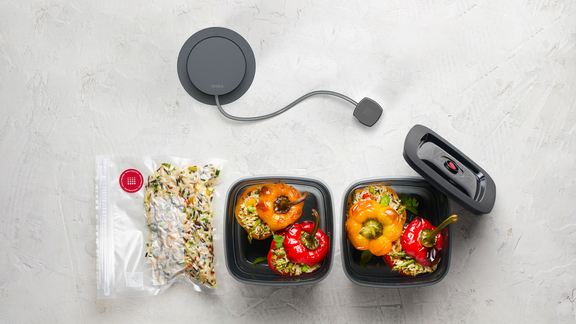
Effectively extend the shelf life of food with the BORA QVac built-in vacuum sealer.
Depending on the type, vacuum-packed food can keep up to three times longer than unpackaged food. Fresh pork can be kept in the fridge for about three days, while it can be kept chilled in a vacuum for at least 10 days.
Yes, cooked dishes such as soups or stews can be vacuum-sealed without any problems. However, they should cool down completely beforehand.
Fresh meat, fish, cheese, fruit, vegetables and cooked dishes are particularly suitable.
Soft cheeses, mushrooms, garlic and bread are less suitable for vacuum packing as they can spoil more quickly or lose their texture when sealed in air. Very moist or soft foods are also not ideal (e.g. tomatoes or soft fruit). They should be frozen beforehand or vacuum-packed in boxes.
Yes, liquid food can be vacuum-packed. The vacuum seal on the BORA QVac also allows drinks, oils and other liquids in open bottles to be preserved for longer.